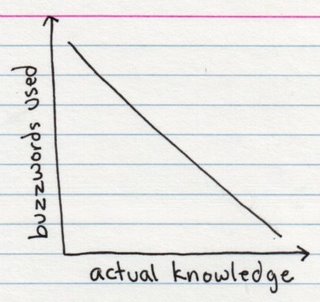 "When my mind thinks about the complexity of the Trinity, the three-in-one God, my mind cannot understand, but my heart feels wonder in abundant satisfaction. It is as though my heart, in the midst of its euphoria, is saying to my mind, There are things you cannot understand, and you must learn to live with this. Not only must you learn to live with this, you must learn to enjoy this. … I need wonder."
"When my mind thinks about the complexity of the Trinity, the three-in-one God, my mind cannot understand, but my heart feels wonder in abundant satisfaction. It is as though my heart, in the midst of its euphoria, is saying to my mind, There are things you cannot understand, and you must learn to live with this. Not only must you learn to live with this, you must learn to enjoy this. … I need wonder."
When we talk about the trinity, there is a tendency to make it to be less than it is. This happens, ironically, when we try to understand it, to put it in a box. The fact of the matter is that we don't understand God. We try. We try a lot. We theologize and theorize and make lots of stabs in the dark at exactly who God is, how he works, even what he's going to do next, and yet all our efforts are mostly in vain.
The Bible talks a lot about stuff God does, and from that we start to see a picture of God's character, but in the end, it's only a construct, a language we use to represent the truth. For example, when I say "apple," is the word the object, or is it simply a concept in your head to represent the object? As human beings, we need something to latch on to, something we can understand to make us feel less inferior than we are. I'm fairly certain that's why Jesus came - to, among other things, give us a picture of God to latch on to. Our concept of the trinity is only a picture of God, and a rough sketch at that.
Often enough, it makes me very frustrated. I'm a guy who often enough prides himself in his understanding of things. There's a lot of stuff that I grasp; God built my mind to wrap around concepts with ease (my major failing is that I don't wrap around people with that much ease at all). And yet, my mind does not begin to understand God. There are people far smarter than me who will openly admit that they don't understand the trinity, how three can be one and one can be three all at the same time.
I'll admit, lots of times I really wish I understood. But then God reminds me that if I really understood him, I probably wouldn't be very humble; to understand God fully is to BE God, and I wouldn't be a very humble god. I'd probably go around rubbing it in people's faces. It's a good thing I'm not God.
I think those of us in the academic world often need that reminder. Humility doesn't come easy to academics (you've probably noticed), and so if they don't understand something, it frustrates them to no end. Lots of times they'll make up something to make it sound like they get it, but they really don't. Evolution is one of those things. Trinitarian theology is another.
I'm not saying that the study of the trinity is unimportant, unbiblical, or unChristian or something. On the contrary, to seek God is to seek ALL of God, to seek to understand (and then emulate) his Character. To know that God exists in permanent relationship is to know that WE are to exist in relationship, and not alone. God created us so that we'd know the joy that HE gets in relating to himself. Sounds sort of schizo, put like that, but that's my point - I don't understand how three separate beings can also be one being.
I guess my point in all this is that we have to be careful that we don't make more of our understanding than it is: at some point in our theological ramblings, we need to have the humility to say "I don't know." The trinity is bigger than big: it's HUGE! God is so much bigger than the little construct we've created to try and understand Him. He's without borders or boundaries, and words cannot ever capture His magnatude. In the end, we need to admit that we won't ever understand Him fully. What's important is that we've been seeking Him: after all, he already knows us, and that, if they are willing to accept it, is enough to satisfy even the most curious.












